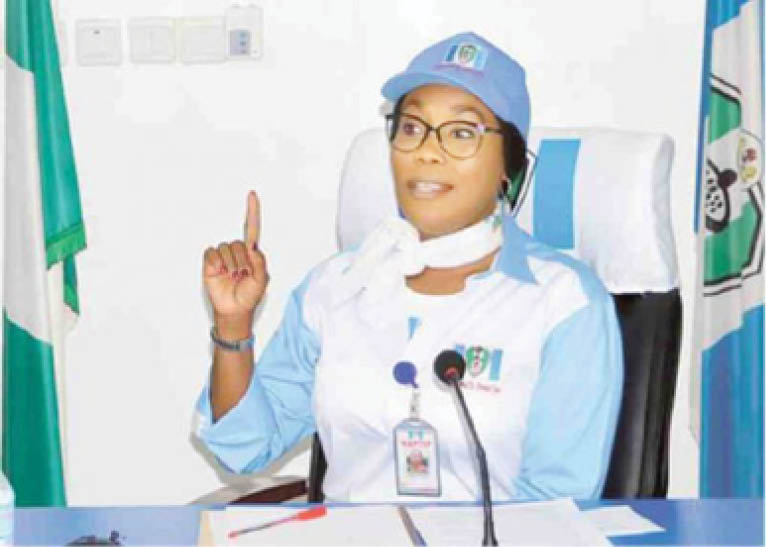Human trafficking: Why gov’t, citizens must act
Despite Nigeria’s efforts, through the National Agency for Trafficking in Persons (NAPTIP) and other agencies, in fighting the menace of human trafficking within and across the states of the federation, the problem has continued to persist. Human trafficking as defined by the Human Traffic Centre as the recruitment and/or movement of someone within or across […]

DG, NAPTIP, Julie Okah-Donli
Despite Nigeria’s efforts, through the National Agency for Trafficking in Persons (NAPTIP) and other agencies, in fighting the menace of human trafficking within and across the states of the federation, the problem has continued to persist.
Human trafficking as defined by the Human Traffic Centre as the recruitment and/or movement of someone within or across borders, through the abuse of power/position with the intention of forced exploitation, commercial or otherwise.
At a press conference in commemoration of the 2019 World Day Against Human Trafficking, Wednesday in Abuja, with theme, ‘Call Your Government to Action’, the Director General of NAPTIP, Julie Okah-Donli, said though the government, through NAPTIP has intensified effort in curbing the menace, the persistence means there is the need for governments to make human trafficking a priority.
She said the prioritisation should involve putting in more responses, resources, implementable legislations, advocacy as well commendable fiscal appropriation to issues of human trafficking.
Okah-Donli said it was heartwarming to report that in line with their proactive strategic action, the agency had already called on governments at all levels to action even as the United Nations was still conceiving the theme for this year.
The DG, who faulted the 2019 United States Trafficking in Persons (TIP) Report released in June 2019, by the US Secretary of State Mike Pompeo, said in several fora, NAPTIP was gratified but not satisfied that Nigeria was upgraded to Tier 2 Watch List which the country had occupied for two years.
She said the report did not give due credit to the efforts of the Government of Nigeria and NAPTIP in particular, adding that their response is based on the fact that Nigeria has doubled its rate of prosecutions and convictions in the last one year.“It must be noted that weighing the efforts of Nigeria, particularly NAPTIP, against other countries that have been highly rated by this report, Nigeria ought to top the Tier 1 table and not be in Tier 2,” she said.
The agency also used the forum to alert the general public on the emerging tricks and trends in human trafficking in the country.
Okah-Donli, while calling on the public to beware, said the new tricks and trends should be urgently addressed in order to protect our loved ones.
According to her, the new tricks and trends involve; rolling out advertorials calling for the recruitment of young Nigerians as drivers, nurses, maids and other professionals; fake offer of scholarships; and non-existing football clubs in some of the notorious Middle East countries.
She said: “As lofty and enticing as these vague offers may be on the face value, it is clear that these young promising Nigerians are targets of organ trafficking and eventual death in some processes; labour exploitation and sex slavery, adding that many of them that have ignorantly responded to those invitations are going through hell; many have died and many may never be able to tell their story while the few lucky ones are still brooding over their bitter experiences.
Meanwhile, the Chief of Mission, International Organisation for Migration (IOM), Franz Celestine, who lauded the efforts of NAPTIP in the fight against human trafficking, said the fight against the phenomenon is a call for action not only on the part of the government but everybody.
He reiterated the desire of IOM to support any action that would herald significant drop in cases of human trafficking in Nigeria.
